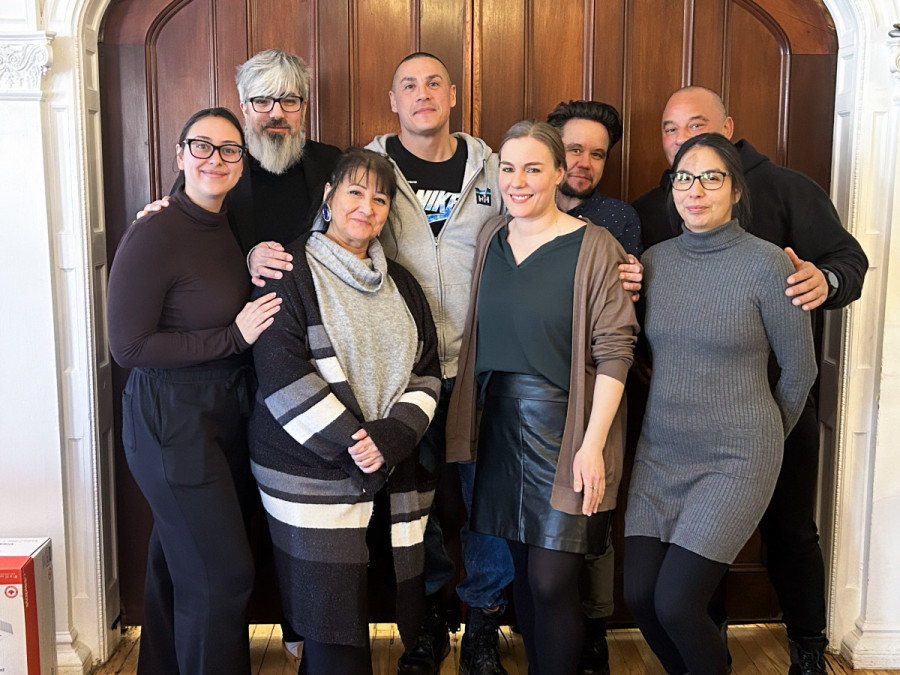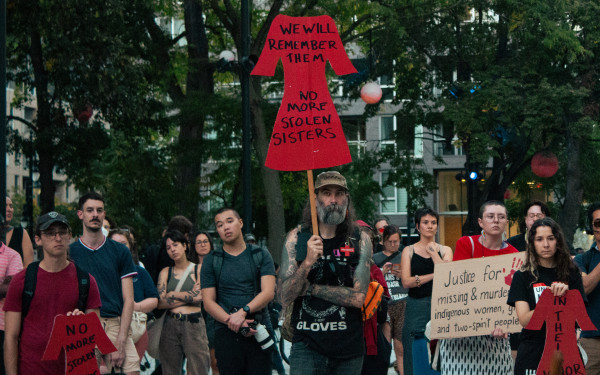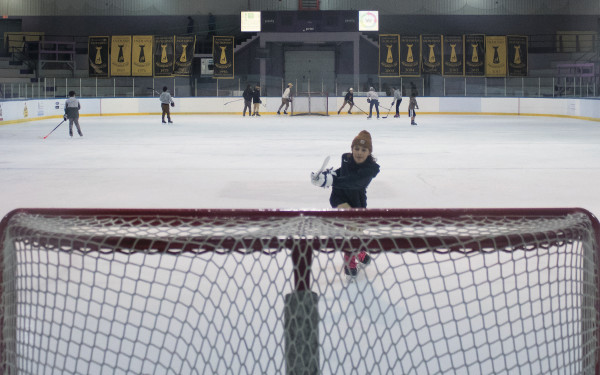Holistic support for Indigenous communities
First Peoples Justice Centre offers guidance while navigating colonial justice systems
The First Peoples Justice Centre of Tiohtià:ke/Montreal is a service providing help to Indigenous people as they maneuver through the colonial justice system. Through decolonial methods, they provide a wide variety of support and adapted services fine-tuned to the community’s needs.
“[The centre is] tailored to supporting the Indigenous community here, so people know that they come here to have a safe space, feel at home, and take meaningful steps to address conflicts that they were in or harm they received,” said Amy Edward, the restorative justice coordinator at the centre.
The centre’s employees are all trained to assist Indigenous people in different ways. Apart from offering support with the justice system, as Edward explained, they also help with wellness and people’s goals. Depending on the situation, the centre can offer housing and employment assistance, as well as access to food security so that they are on a good path moving forward.
Indigenous people who do not want to go to the criminal courtroom are granted a similarly meaningful process through the centre. Edward finds the traditional justice system to be harmful to Indigenous people due to the lack of acknowledgement of past colonial damages.
According to the Indigenous Justice Strategy report, Canadian courts of justice are “colonial systems that do not work for their communities.” More importantly, the subjects of the report expressed the need to have programs that offer community-based justice solutions.
“There are underlying nuances [for Indigenous people] when it comes to intergenerational trauma, when it comes to substance mismanagement, and when it comes to family and community dynamics,” she said. “The reality is we work with a lot of folks who are in situations of homelessness.”
According to a 2022 study, one in ten off-reserve Indigenous people have experienced unsheltered homelessness. The study attributes this high rate to “systemic barriers to employment and education, racial discrimination in the housing market, and the intergenerational effects of colonization and residential school experiences.”
Ellen Filippelli, the executive director of the centre, explained that the government expects the Indigenous community to move forward and ignore the hurt that was inflicted on their people.
“Just imagine for a moment. Somebody going into your home [...] and searching for any child who’s four-years-old and over and is taking them all out of your house, and you never see them again,” she said. “We’re supposed to be okay with this.”
According to Filippelli, the centre’s work also remains limited due to a restricted amount of funding. “We’re trying to do twice as much with half the money,” she said. Filipelli added that with more financial assistance, the centre hopes to change the colonial perspectives the federal and provincial governments hold of Indigenous people.
Filippelli explained that the government doesn't recognize Indigenous people in the territories in the same way as in the urban area, leading to different amounts of money being allocated. In turn, many of them must commute to the city due to resources not being available on their land.
“The government always talks about truth and reconciliation. Well, let’s talk about the truth first,” said Filippelli. “The truth is that they’re not treating us any differently or with the right respect that they should be and acknowledging stuff like this, like funding our programs. Fully. Not half, not quarter; fully.”
Despite their monetary limitations, Corey Thomas, the transition coordinator at the centre, explained that in order to help people reintegrate into society, the centre will pay 100 per cent of their rent for the first six months and 50 per cent for the next three months. That way, they can focus more on their reintegration and less on financial matters.
Thomas also analyzes what their conditions are, as well as what their obligations will be once they are released. He sees what is realistic for the individual with a parole officer.
Every Indigenous individual is welcome to use their services. The centre aims to treat members as extended family.
“We not only [provide] service [to] Indigenous people, but they are programs that are run by Indigenous people, who have life experience and have passed through a lot of the terminals that our clients have,” said Filipelli. “It makes that connection right away with our people, and they feel it.”
The centre is accepting donations at this link.
This article originally appeared in Volume 44, Issue 10, published February 13, 2024.





_600_375_90_s_c1.jpg)

